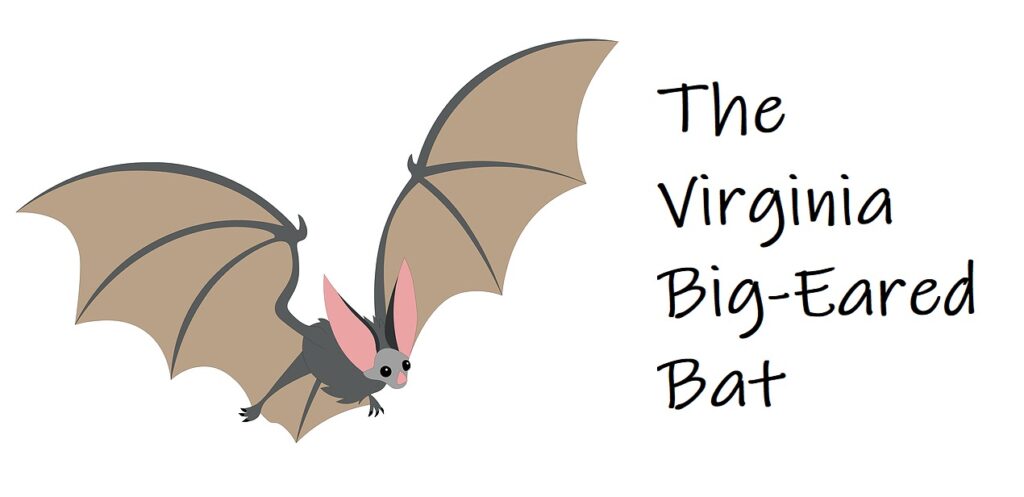The Virginia Big-Eared bat (Corynorhinus townsendii virginianus) is a subspecies of the Big-Eared bat, which is found in North America. The Virginia big-eared bat is found in only four states in the United States: Virginia, West Virginia, North Carolina, and Tennessee. The Virginia big-eared bat is a small bat, with a wingspan of only 8-10 inches. The body of this bat is brown or gray in color, with lighter fur on the underside. The ears of this bat are large and triangle-shaped, and the nose is long and narrow. This bat roosts in tree cavities, buildings, or other sheltered areas during the day. At night, it emerges to hunt for insects. The Virginia big-eared bat uses echolocation to navigate and find its prey.
The Virginia big-eared bat is an important species in its ecosystem. It plays a role in controlling the insect population, and it is also a food source for other animals such as owls and snakes. The biggest threat to the Virginia big-eared bat is habitat loss. This bat requires specific types of habitats in order to survive, and this habitat is being destroyed by development and other human activities. If this trend continues, the Virginia big-eared bat will likely become extinct. This is even more concerning due to the fact that the Virginia Big-Eared bat is listed as endangered by the U.S. Fish and Wildlife Service and protected under the Endangered Species Act.
Continue reading to learn more about the Virginia Big-Eared bat, including why its species is endangered and what we can do to protect local bat populations for the sake of our surrounding Eco-systems.

The Endangered Virginia Big-Eared Bat
The Virginia Big Eared Bat is an endangered species, and this is a problem for a few reasons. First, these bats are important for the ecosystem because they help control insect populations. Second, as a top predator in the food chain, the Virginia Big Eared Bat provides valuable nutrients to other animals further down the food chain Third, the Virginia Big Eared Bat is a keystone species, meaning that its populations have a large impact on the health of the ecosystem as a whole. Finally, the Virginia Big Eared Bat is an important part of our cultural heritage, and its loss would be a tragedy.
Endangerment Status
There are many reasons why the Virginia Big Eared Bat is endangered. Habitat loss is the biggest threat to these bats, as their natural roosting and foraging areas are being destroyed by development. Additionally, the Virginia Big Eared Bat is threatened by white-nose syndrome, a disease that has decimated bat populations across North America. Climate change is also a major threat to these bats, as it is changing the timing of their migration patterns and making their habitat less hospitable.
The loss of the Virginia Big Eared Bat would have a devastating impact on the ecosystem. These bats play an important role in controlling insect populations, and their loss would likely lead to an increase in insect-borne diseases. Additionally, the Virginia Big Eared Bat is a keystone species, meaning that its loss would have a ripple effect throughout the ecosystem. The Virginia Big Eared Bat is also an important part of our cultural heritage, and its loss would be a tragedy.
The Importance of Bat Conservation Efforts
We must do everything we can to save the Virginia Big Eared Bat. We need to protect their habitat and take steps to mitigate the effects of climate change. We also need to raise awareness about the importance of these bats and the dangers they face. Only by working together can we hope to save this important species.
If you are dealing with nuisance bats around your Virginia home or business, enlist the services of a licensed and insured bat removal and control company for safe and humane handling of these precious critters.
Are you having problems with nuisance bats around your house? Contact Virginia Bat Pros at 804-729-9097 for fast and affordable bat removal services in Richmond, VA and its surrounding areas. We serve residential and commercial clients.
Related Posts:
How Do-It-Yourself Bat Removal Can Lead to a 50 Thousand Dollar Fine
Federally Endangered Species of Bat in Virginia
How to Safely Support Local Bat Colonies
